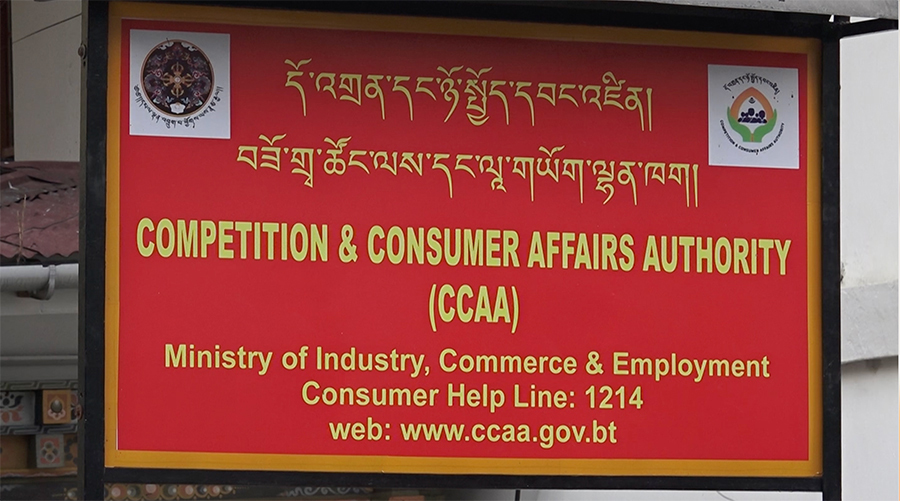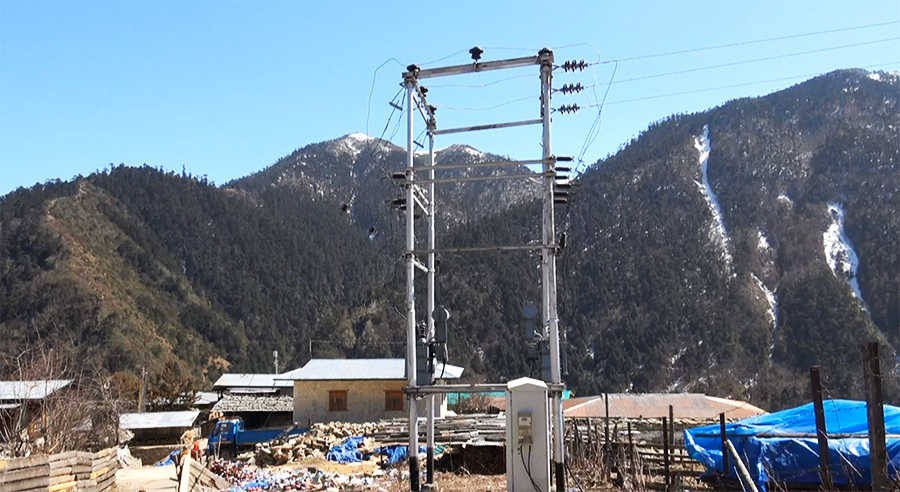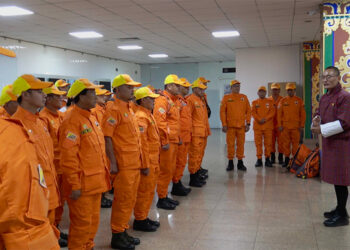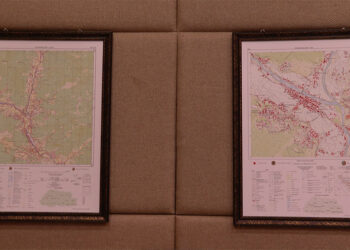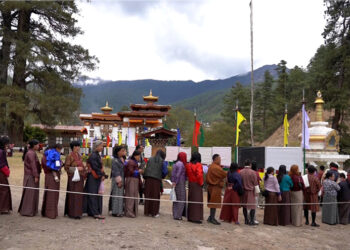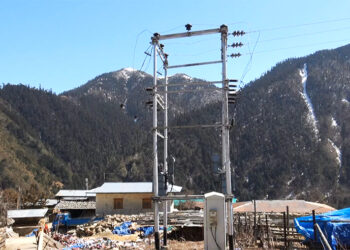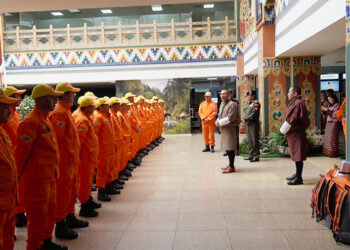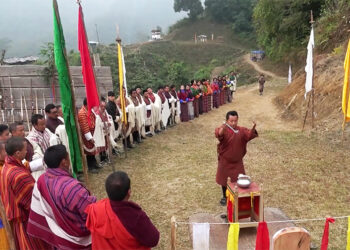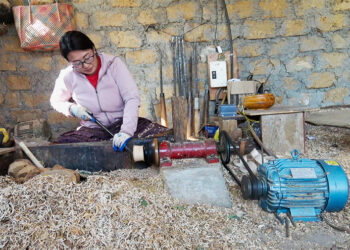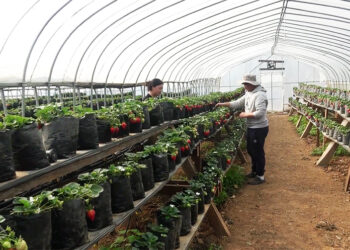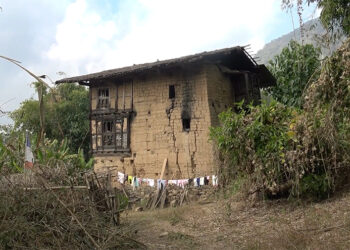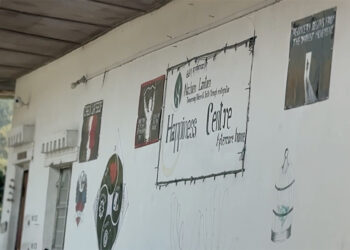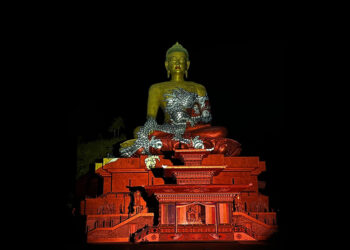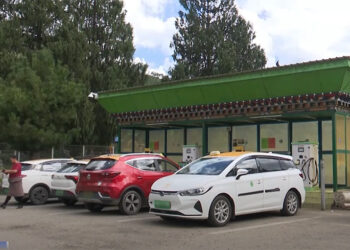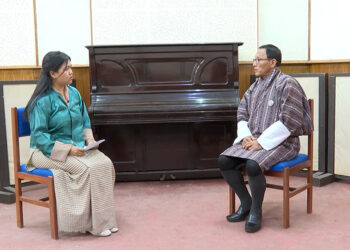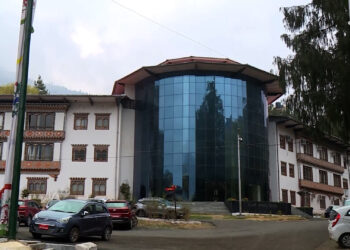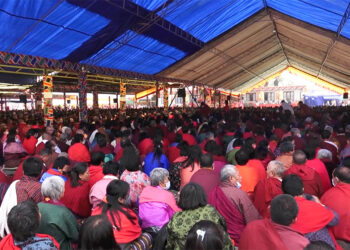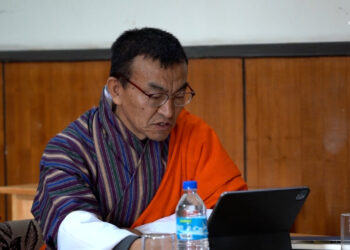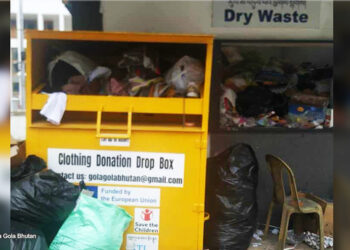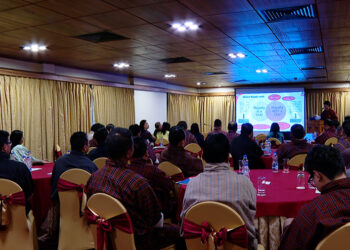Featured News
Centuries-old Londha festival in Dagana celebrates life, tradition and community
Bhutan's deep-rooted traditions and cultural heritage continue to thrive through vibrant local festivals, preserving the nation’s unique identity. Among them,...
RSPN’s drone initiative offers new hope for White-bellied Heron conservation
Drones may revolutionise White-bellied Heron conservation. The Royal Society for Protection of Nature (RSPN) tested drone technology to survey previously...
Breaking barriers in woodturning craft, Sangay Dolma’s journey of craftmanship
Being a woodturner, shaazop is not everyone’s cup of tea, especially not if you are a woman. But Sangay Dolma,...
Young couple turns farming experience and training into thriving strawberry farming business, Dagana
The best ideas often stem from simple observations. This is true for a couple in Tsangkha Gewog in Dagana. After...
Centuries-old house in Dagana : owner in dilemma over preservation and demolition
In Khebisa Gewog of Dagana, a four-storey mud house constructed centuries ago stands as a witness to history. Now, as...
Youth embrace Dung and Jaling crafting skills for income in Pema Gatshel
While many youths from the region have moved to urban areas in search of better job opportunities, a few young...
From addiction to independence, Phuentshogling’s Happiness Centre helps rebuild lives
It is often love and persistence of the family and society that make recovering from an alcohol and drug addiction...
A centenarian’s recipe to longevity
For centenarians who have seen the world for over a hundred years, age usually is just a number. So, what...
Buddha Statue comes alive with Gerry Hofstetter’s light display
The Buddha Statue at Kuensel Phodrang in Thimphu came alive last night with Gerry Hofstetter’s light art. His projections featured...
𝗥𝗲𝗺𝗲𝗺𝗯𝗲𝗿𝗶𝗻𝗴 𝗗𝗮𝘀𝗵𝗼 𝗧𝘀𝗵𝗲𝗿𝗶𝗻𝗴 𝗪𝗮𝗻𝗴𝗱𝗮’𝘀 𝗿𝗲𝗺𝗮𝗿𝗸𝗮𝗯𝗹𝗲 𝗷𝗼𝘂𝗿𝗻𝗲𝘆
Amidst the misty hills of Samtenthang village, the nation bid a heartfelt farewell to one of its most cherished sons,...
Politics
Capacity building training prepares women for future elections
To shatter cultural and social barriers that have long kept them from leadership roles, 20 young and determined women from...
Popular
-
EV taxi loan defaults reach Nu 41 M, BoB seizes five EV taxis
-
Tashichhoeling Dungkhag terminates contract for delayed Peljorling HSS hostel project, Samtse
-
People call for shift in unlimited late-night data plan timing, health experts warn of long-term implications
-
RCSC extends GSP and ESP contract periods to up to five years
-
Gola Gola Bhutan faces challenges amid misuse of drop-off centres
Gola Gola Bhutan faces challenges amid misuse of drop-off centres
Gola Gola Bhutan, a youth-led initiative, has supported underprivileged communities nationwide by distributing donated clothes. But its drop-off points are now being misused as dumping sites. The team says usable clothing is often damaged, and separating waste from clothes has become time-consuming. This is a Gola Gola Bhutan’s drop-off point at Pamtsho in Thimphu. The donated clothing is cleaned and...
Department of Geology and Mines proposes lowering royalties for value-added minerals to encourage local processing
The Department of Geology and Mines is proposing lower royalties on processed mineral exports. The move aims to boost value addition in the mining sector and support economic growth. The proposal is under review and could be tabled in Parliament this summer. Right now, dolomite carries a flat royalty rate of 6.5 per cent whether it's raw, crushed, or powdered....
Transforming pineapple leaves into textile fibre – Durungri village, Pema Gatshel
The cultivation of pineapples is steadily rising each year in Pema Gatshel. Traditionally, farmers have focused solely on selling the fruit in local markets and factories, making it a vital source of income for many in the region. However, an innovative graduate from Durungri is preparing to transform pineapple leaves into a valuable textile fibre. Durungri village, located in Dungmin...
Waste issue hits Tumdra Ami Ney following Maha Shivaratri celebrations
Every year, the widely celebrated Maha Shivaratri brings thousands of devotees to Tumdra Ami Ney in Chhukha. But once the festivities end, what is left behind is a troubling sight, heaps of waste flooding the sacred site. Despite annual cleaning campaigns by authorities and volunteers, managing waste has become a challenge. It has been more than a month after the...
Recent News
- Bhutan Medical Relief Team returns home after successful mission in Myanmar
- New digital topographic maps to help in planning and disaster response
- Government urged to secure consumer rights in private educational institutes
- BOB Bhutan Premier League 2025 kicks off tomorrow
- Jungwa Chidoe Kurim at Pangrizampa begins
News Category
- Accidents
- Agriculture
- Announcement
- Business
- Crime/Legal
- Culture
- Development
- Disaster
- Economy
- Education
- Entertainment
- Environment
- Feature
- Featured
- Festival
- GMC
- Headlines
- Health
- Legal
- Literature
- Livestock
- Media
- Other Stories
- Politics
- RCSC
- Recent stories
- Religion
- Sci/Tech
- Social
- Sports
- Technology
- Tourism
- Uncategorized
- Video
- Video Story
- Wildlife
© 2024 BBSCL. All rights reserved.



